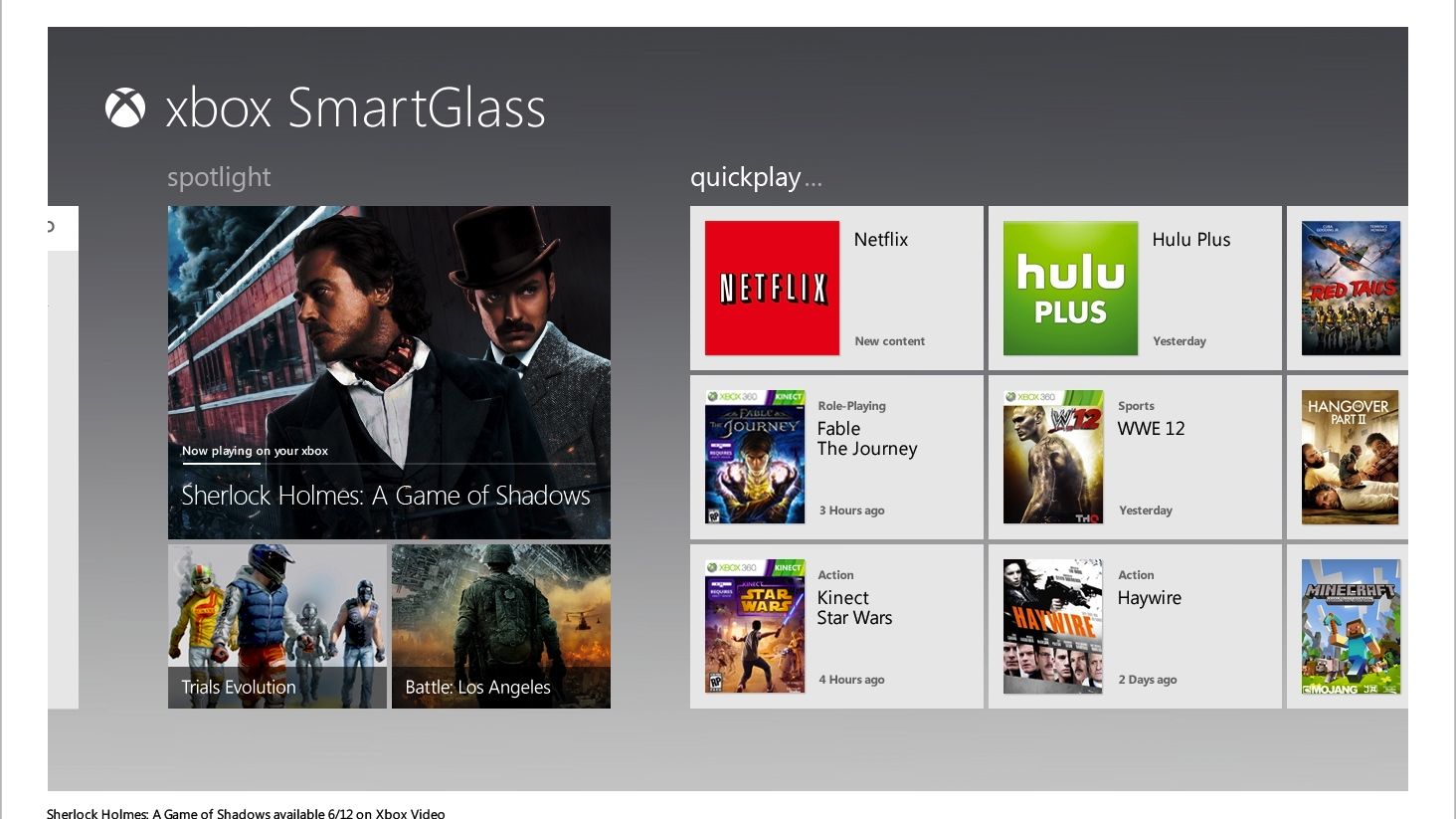SmartGlass: Microsoft's secret weapon in the battle for the living room
Why SmartGlass is Microsoft's killer app

Microsoft knows that most of us own iOS or Android powered tablets and phones, but SmartGlass allows its Xbox entertainment ecosystem to bleed out onto these devices.
Microsoft doesn't mind if you're watching movies on your new iPad as long as they were purchased through Xbox. In addition, it's betting that the more deeply you are drawn into Xbox entertainment services presented through a Windows 8 interface on your TV, the more likely you are to embrace Windows 8 powered tablets and phones with your next upgrade.
However, there are still some kinks to iron out. The aging Xbox 360 hardware isn't quite the ideal central hub for all your entertainment needs. It's not practical (or economical) to leave the device running, which creates an instant barrier between you and your media, and it wasn't designed to multitask in the way that modern users expect.
Conveniently, hardcore gamers are also hungry for an upgrade, as the performance of games on the system has now fallen far behind that available on a modern PC.
Xbox 720
So, in 2013 Microsoft will launch a next generation Xbox console which supports an always-on power state and carries a chipset designed to enable concurrent apps.
The company knows that hardcore gamers will drive early adoption, but mass market penetration must follow quickly if its strategy is to succeed. In order to achieve this, Microsoft will begin to position itself more as a service provider like Sky than as a traditional console manufacturer.
Indeed, Microsoft has already been trialing this model with Xbox 360, which you can now purchase through selected retailers in the US for just $99 if you also sign up to a two-year Xbox Live subscription. This move is clearly in anticipation of a full transition to service provider when the new Xbox launches.
Sign up for breaking news, reviews, opinion, top tech deals, and more.
Bill Gate's was serious about his company's lofty goal back in 1980, and today Microsoft is serious about its new ambition to own the living room and become the de facto provider of our digital entertainment.
To achieve this objective, the Redmond giant is attacking on all fronts. Surface and its successors will answer the demand for sleek, innovative hardware that Apple has created in the market place, Windows 8 is ready to run on the full array of devices we now have in our lives, and Xbox will serve up all the entertainment and content we need via a seamless, SmartGlass-powered medium.
But is this strategy too convoluted? If one piece of the puzzle fails to fall into place, will the whole house of cards come tumbling down? This is the beginning of a fascinating new era in the history of Microsoft.